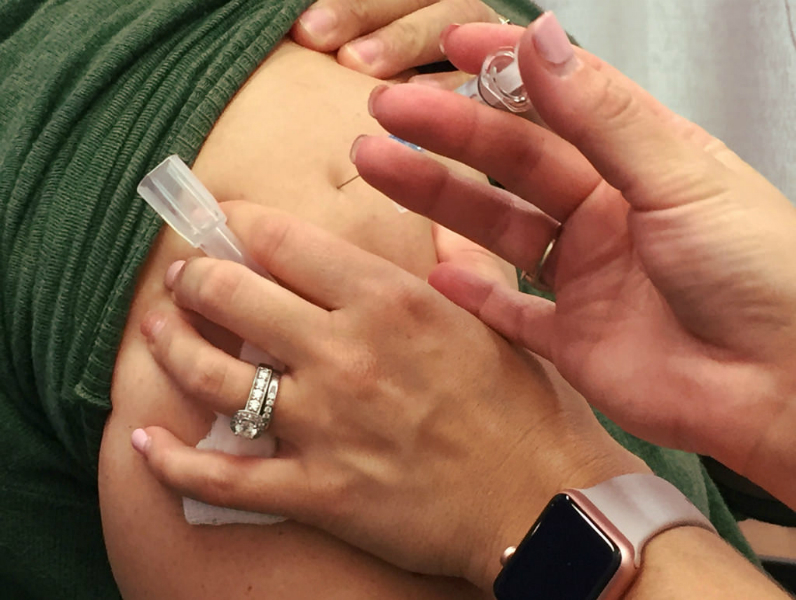In my book, A Woman’s Guide to Healthy Aging, I devote an entire chapter to the issue of immunization. Why is this so important and what do shots have to do with aging? The short answer is that it is all about independence.
As we get older, our senses decline and so do our immune systems. It’s easy to understand that older people need glasses or hearing aids. But the decline of the immune system, the gradual deterioration caused by the aging process, is not that easy to see. What happens is that the body stops mounting a robust defence against invaders the way it does for younger people. For example, older people often do not produce high fevers in the face of infection, whereas a child may produce a very high febrile response.
Because our immune systems gets weaker with age, our ability to suppress and eliminate certain viruses is also diminished. For example, many older people likely contracted chickenpox when they were younger. Their bodies fought off the invader, but did not completely eradicate the virus. That virus, which lives in the nerves, lies dormant. But with time, the body is weakened and the virus can escape and create a blistering, often painful, rash known as shingles.
By the age of 80, one in two Canadians will have suffered from shingles. Women are more at risk than men, and the older you are, the more likely it is that you will experience chronic nerve damage and chronic pain from this virus. If you have an episode of shingles in the eye, your chance of suffering a stroke in the first month after the virus erupts increases by 400 per cent.
A new shingles vaccine called Shingrix is recommended by most medical bodies for those over 50, but unfortunately, it is not funded by provincial health insurance. Nevertheless, I recommend this highly effective vaccine for all my patients over the age of 50 because I want them to be able to be independent, active and strong, rather than suffering from chronic nerve pain. This is a very effective vaccine and a great example of how prevention is often the best medicine.
But what about the flu vaccine? It is often the case that even people who get the vaccine will get the flu. Yet the goal of the vaccine is not to eliminate every case. Rather, the goal is to decrease morbidity, or how sick people get, and mortality, the chance of dying from the disease. So yes, those who get the shot may get the flu, but they are very unlikely to end up in the emergency room or intensive care unit as a result.
READ: HEALTHY AGING: BEING A BETTER LISTENER
In Ontario this year, the Fluzone High Dose Vaccine is not only recommended, it’s covered for people over the age of 65. The reason for this lies in a U.S. study, which found a 23 per cent reduction in hospitalizations for seniors who were immunized with the high-dose Fluzone, compared to the regular Fluzone. This is really significant. The study compared groups of people who had some kind of a flu shot, not a placebo. And yes, something is better than nothing. But high dose offers even better protection for weakened, older immune systems.
The goal of prevention is to keep people well and out of hospital. Not suffering from influenza or shingles increases the chance that a patient will be independent and active. And that’s what we all want as we grow older – to be healthy, strong and robust.
I have had my flu shot and my Shingrix shot. Having been in practice for more than 30 years, I have seen these diseases and the havoc they cause to individuals and their families. I am therefore a strong believer in vaccines.
